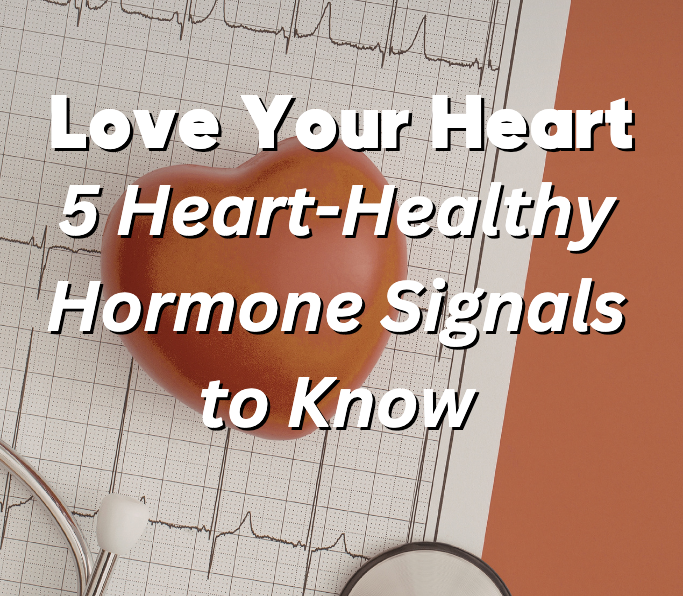You’re not just tired—you’re exhausted. Your periods are irregular, your mood is unpredictable, and sleep feels like a lost art. If this sounds familiar, your hormones may be out of balance.
Hormonal imbalances are incredibly common in women, especially between the ages of 30 and 55. Yet, they’re often brushed off as stress, aging, or “just part of being a woman.” In reality, your body is giving you signals—pleading for attention, support, and healing. Let’s shine a light on the most common symptoms that suggest your hormones are waving a red flag.
Fatigue That Doesn’t Improve with Rest
We’re not talking about the kind of tiredness a nap can fix. Hormonal fatigue is the deep, bone-weary exhaustion that lingers no matter how many hours you sleep. Cortisol dysregulation (often due to chronic stress), sluggish thyroid hormones, or poor insulin sensitivity can all make it hard for your cells to produce energy efficiently. If you’re dragging yourself out of bed each morning or needing caffeine to function, it’s time to dig deeper.
Weight Gain or Difficulty Losing Weight
If the scale won’t budge despite eating clean and working out, it might not be about willpower—it could be your hormones. Estrogen dominance can encourage fat storage, particularly around the hips and thighs. Insulin resistance makes your body hold onto glucose as fat. And low thyroid hormones slow metabolism, making weight loss feel impossible. Hormonal weight gain often resists traditional diets because the root issue isn’t being addressed.
Mood Swings, Anxiety, or Depression
Ever feel like you’re riding an emotional rollercoaster you didn’t sign up for? Estrogen and progesterone influence brain chemicals like serotonin, dopamine, and GABA, key players in regulating mood and calming the nervous system. Imbalances can cause sudden sadness, irritability, anxiety, or depressive episodes. These emotional shifts aren’t “just in your head”—they often have a very real, physiological root in your hormone health.
Irregular or Painful Periods
Your menstrual cycle is a monthly report card of your hormonal health. Skipped periods, heavy bleeding, intense cramps, or spotting between cycles can signal issues like low progesterone, high estrogen, or conditions such as PCOS. A healthy cycle should be regular, manageable, and free of severe symptoms. If your period is erratic or unbearable, your hormones are likely out of sync.
Hair Loss or Thinning Hair
If your ponytail feels thinner or you’re noticing more strands in the shower drain, hormones could be to blame. Thyroid dysfunction—especially hypothyroidism—slows the growth cycle of your hair, while high androgens (like testosterone and DHT) can cause hair thinning at the temples or crown. In women, hair loss is a distressing but often overlooked symptom of deeper hormonal imbalances.
Low Libido
Desire doesn’t disappear because of age—it often fades due to hormonal shifts. Testosterone (yes, women need it too) fuels sexual desire, while estrogen supports vaginal lubrication and tissue health. Low levels of either can result in reduced libido, discomfort during intimacy, and relationship strain. If your sex drive has vanished, hormones could be the missing piece of the puzzle.
Insomnia or Poor Sleep Quality
Can’t fall asleep? Or wake up at 2 AM, staring at the ceiling? Cortisol, melatonin, estrogen, and progesterone all help regulate your circadian rhythm. When cortisol is high at night or progesterone is low, your nervous system can’t wind down. You may feel “wired but tired,” waking up unrefreshed and dragging through the day. Good sleep starts with balanced hormones.
Bloating, Constipation, or Digestive Issues
Believe it or not, your gut and your hormones are best friends—or worst enemies. Estrogen and thyroid hormones both impact digestion, motility, and the health of your microbiome. When out of balance, you may feel bloated after meals, constipated, or experience IBS-like symptoms. Inflammation from hormone imbalances can also impair nutrient absorption, perpetuating the cycle.
What You Can Do?
If these symptoms hit close to home, you’re not alone—and you’re not imagining things. Your body is speaking to you. At EVEXIAS, we go beyond symptom-masking to identify and treat the root cause. Through comprehensive lab testing and a personalized, holistic approach, we’ll uncover what’s happening inside your body and craft a treatment plan that works with your hormones, not against them.
Whether it’s through lifestyle changes, targeted supplements, bioidentical hormone therapy, or gut healing protocols, you can restore balance and finally feel like you again—clear-headed, energized, confident, and thriving.






